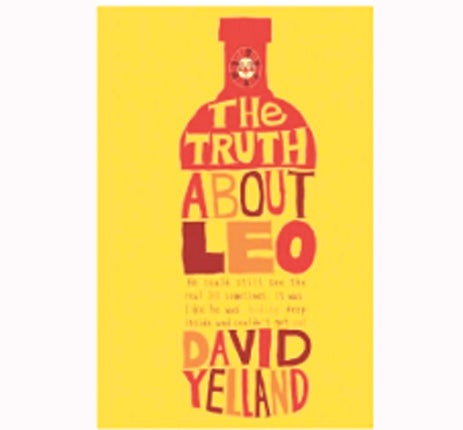The Truth About Leo, By David Yelland
Rake’s progress falls flat

Your support helps us to tell the story
From reproductive rights to climate change to Big Tech, The Independent is on the ground when the story is developing. Whether it's investigating the financials of Elon Musk's pro-Trump PAC or producing our latest documentary, 'The A Word', which shines a light on the American women fighting for reproductive rights, we know how important it is to parse out the facts from the messaging.
At such a critical moment in US history, we need reporters on the ground. Your donation allows us to keep sending journalists to speak to both sides of the story.
The Independent is trusted by Americans across the entire political spectrum. And unlike many other quality news outlets, we choose not to lock Americans out of our reporting and analysis with paywalls. We believe quality journalism should be available to everyone, paid for by those who can afford it.
Your support makes all the difference.Editor of The Sun from 1998 to 2003, during which time he was drinking up to four bottles of chardonnay a day, David Yelland knows about alcoholism and now wants the rest of the world to know about it too.
So he has written a story aimed principally at those children who see their parents drinking themselves to death, but have no idea what they can do about it. Deciding to involve the authorities could mean losing a home; staying around, hoping that things might improve, runs the risk of physical injury. For Leo, the 10-year-old hero of this novel, there is an additional hazard after his house catches fire one night when his father Dr Tom Rake, a local GP, is in one of his drunken fits.
No one could fault Yelland’s intentions, and the passages describing the father’s violent aggression when searching for the bottles his son has hidden are truly frightening. But writing Sun editorials is poor preparation for succeeding with a novel, and there are too many staccato sentences piled up on top of each other, rather like the empties in Dr Rake’s dustbin.
Leo’s unpleasant teacher Manders comes straight from the stereotype cupboard where he should have been left in favour of someone more convincingly of his own time. Clichés are never far away, with “big fat lies” referred to twice, while hearts plummet like stones, eyes narrow and plans are hatched. There is an uncertainty of tone, with an infantile visiting prime minister seeming to come from a story aimed at much younger readers.
But Yelland is not trying to write a classic. Like the drunken father in the story, he too has had a wife who died of cancer leaving a young son behind. This is the book he wishes he had read as a child, with the hope that other children, looking forward to the time when they too can get smashed out of their skulls, may start thinking again.
The Victorians had a fine line in temperance songs and stories, although George Cruikshank, Dickens’s one time illustrator, failed with his version of Cinderella, which ends with the king agreeing that fountains of wine would be a bad way indeed to celebrate his son’s nuptials. If we are now in for a new batch of admonitory stories, the trick as always is to keep any particular authorial warnings implicit rather than staring readers in the face.
Yelland is not as yet a successful novelist. His main character Leo is colourless and his friend Flora, whose mother is also an alcoholic, too good to be true. But his message is timely and deserves to be heard.
Join our commenting forum
Join thought-provoking conversations, follow other Independent readers and see their replies
Comments